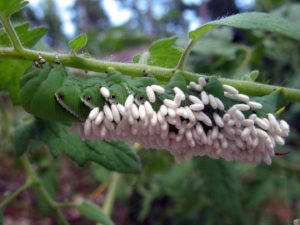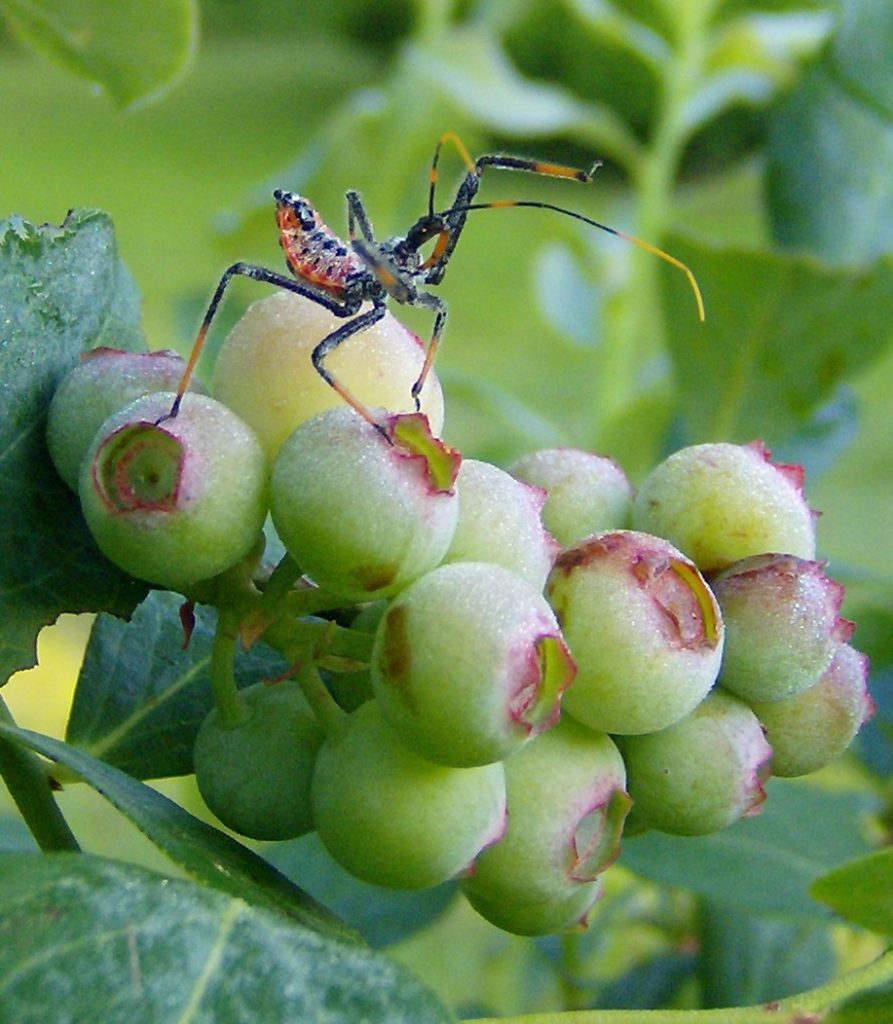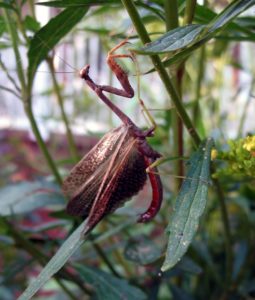Hooray for Beneficial Bugs in the Veggie Garden!
go.ncsu.edu/readext?713195
en Español / em Português
El inglés es el idioma de control de esta página. En la medida en que haya algún conflicto entre la traducción al inglés y la traducción, el inglés prevalece.
Al hacer clic en el enlace de traducción se activa un servicio de traducción gratuito para convertir la página al español. Al igual que con cualquier traducción por Internet, la conversión no es sensible al contexto y puede que no traduzca el texto en su significado original. NC State Extension no garantiza la exactitud del texto traducido. Por favor, tenga en cuenta que algunas aplicaciones y/o servicios pueden no funcionar como se espera cuando se traducen.
Português
Inglês é o idioma de controle desta página. Na medida que haja algum conflito entre o texto original em Inglês e a tradução, o Inglês prevalece.
Ao clicar no link de tradução, um serviço gratuito de tradução será ativado para converter a página para o Português. Como em qualquer tradução pela internet, a conversão não é sensivel ao contexto e pode não ocorrer a tradução para o significado orginal. O serviço de Extensão da Carolina do Norte (NC State Extension) não garante a exatidão do texto traduzido. Por favor, observe que algumas funções ou serviços podem não funcionar como esperado após a tradução.
English
English is the controlling language of this page. To the extent there is any conflict between the English text and the translation, English controls.
Clicking on the translation link activates a free translation service to convert the page to Spanish. As with any Internet translation, the conversion is not context-sensitive and may not translate the text to its original meaning. NC State Extension does not guarantee the accuracy of the translated text. Please note that some applications and/or services may not function as expected when translated.
Collapse ▲Contrary to popular belief there are more good bugs than bad in the landscape. About 1% of all insect species are considered to be serious plant pests. Good bugs are often referred to as beneficial since they help gardeners keep plant pests under control. A healthy garden maintains a balance between pests and beneficial species. So get ready to roll out the welcome mat for the following insect friends:

You can tell this tomato hornworm has been parasitize by tiny beneficial wasps by the silken cocoons attached to its body.
Parasitic Wasps: Parasitic wasps range in size from very small to large. They use plant pests as a food source for their young. The female wasp typically lays her eggs into host insects, such as caterpillars, beetle larvae, and aphids. The young develop on or near the host insect, killing it. You will often notice parasitized hosts with silky, white cocoons attached to their bodies. If you find a parasitized insect in the garden, be sure to leave it, so that the young parasitic wasps are able to complete their life-cycle and continue to control pests in the future.

Assassin bugs are naturally occurring predators of plant pests in your landscape. They feed on a variety of pests including aphids.
Assassin Bug: These moderately large insects feed mainly on soft-bodied insects such as caterpillars and aphids. You can identify assassin bugs by the long beak at the front of their head. They use this long beak to stab and kill prey. Assassin bugs feed by injecting a toxin into the body of their prey that dissolves tissue, allowing the Assassin bug to suck up the juices. Common assassin bugs found in the garden, include the Wheel bug which feeds on tomato hornworms and the Spined Assassin bug which feeds on Mexican bean beetles.
Carolina Mantid: Mantids are well known for their predatory abilities. They feed on a wide range of insects including other beneficials. The Carolina mantid is our only native mantid. The two other mantids found in our county, the European mantid and the Chinese mantid, were both introduced in hopes of controlling native insect pest populations. Unfortunately, these introductions have started to displace our Carolina mantid, therefore the purchase and release of European and Chinese mantids into the garden is no longer recommended. To encourage mantids and other beneficials, you should limit broad-spectrum insecticide use.
To learn more about beneficial insects in vegetables and cut flowers please visit the NC State Extension Growing Small Farms website.





